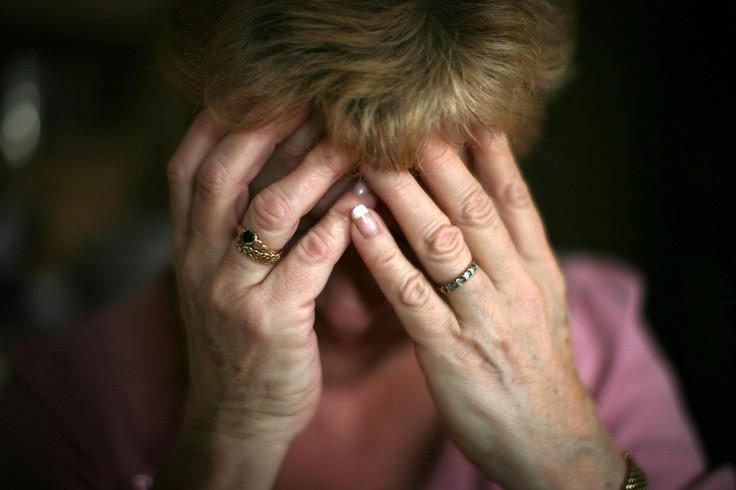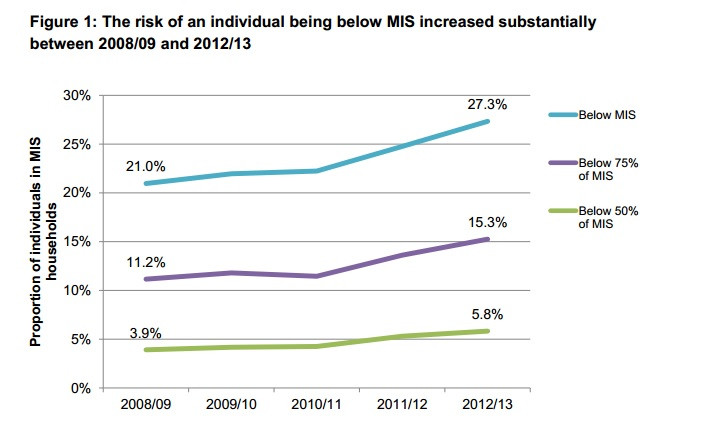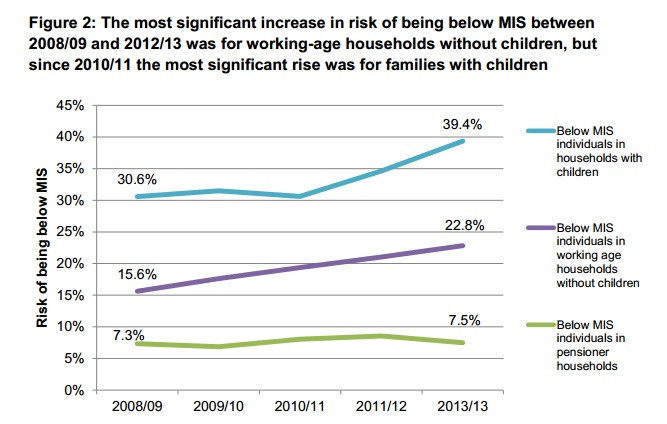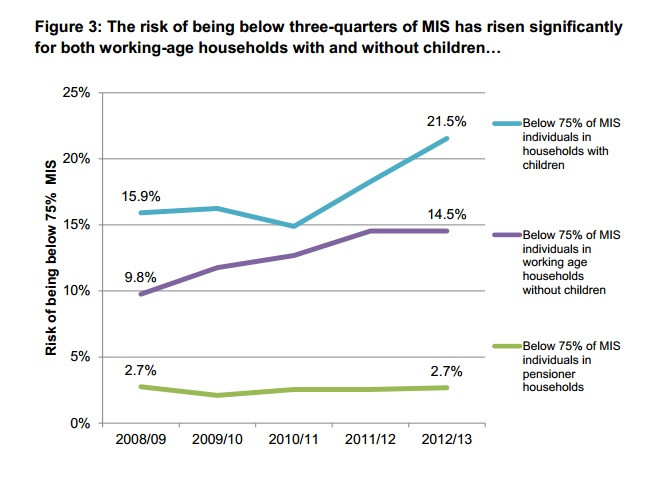Cost of living crisis: 40% of families can't afford to 'participate in society'

Almost 40% of British families don't have enough money for a socially acceptable standard of living, according to a new report by Joseph Rowntree Foundation.
These households live on such critically low wages that they are prevented from "participating in society" in economic terms, beyond the rudiments of purchasing food, shelter and clothes.
According to the charity's study, 8.1 million people earned less than its Minimum Income Standard (MIS) threshold in 2012/13, an increase of one-third on the figure from 2008/2009.
"There has been a turnaround in who is suffering most as a result of the economic crisis and government measures to reduce the deficit," said Katie Schmuecker, policy manager at the Joseph Rowntree Foundation.
"While last year's monitoring report showed a sharp rise in young single people struggling to make ends meet, this year's report shows a rapid widening of the gap between the incomes and costs of families with children."

The minimum income for a single person of working age is calculated at £16,284. For a couple with two children, this MIS threshold would rise to £20,400.

Single parent families are under the greatest pressure. In fact the study found that some 71% living below the required MIS level are unable to participate in society.
Out of the 3.7 million single working-age households in the UK, 1.4 million fell below the MIS threshold, a 29% increase on 2008/2009 levels.
"Childless working households are the worst affected when it comes to low pay – and for them it's getting worse, not better," Mike Kelly, head of living wage at KPMG, told the Guardian.
"For far too long, low income households have been struggling to make ends meet and for young people who are trapped in low-paid jobs, with little prospects, it's an even bleaker situation.
"The fact remains that more than 5 million people are earning less than they need to live on. Too many families still struggle to afford the basics, meaning we face a scenario that, in 2015, should have long been consigned to the footnotes of history."

The foundation outlined several ways that the government could help alleviate the cost of living crisis for millions of Britons, such as reforming the market for essentials like energy, financial services and transport, so that lower earners don't pay as much as wealthier households.
The government is also urged to amend the minimum wage in line with the change of the cost of living in the UK.
"[The report shows] further evidence of the impact stagnating wages and fiscal consolidation is having on living standards of poor families," said Alan Milburn, chair of the Social Mobility and Child Poverty Commission.
"Despite very strong employment growth and record low worklessness, the number of people in families with children who are unable to attain what the public believe to be a minimum standard of living has increased by 2.2 million – more than a third – since the start of the recession, with the majority of the increase in working households."
Milburn also stressed the commission's commitment to "forging a new settlement to make Britain a living wage country by 2025, and ensuring that the working poor are protected from the impact of continued austerity in the next parliament."
© Copyright IBTimes 2025. All rights reserved.





















